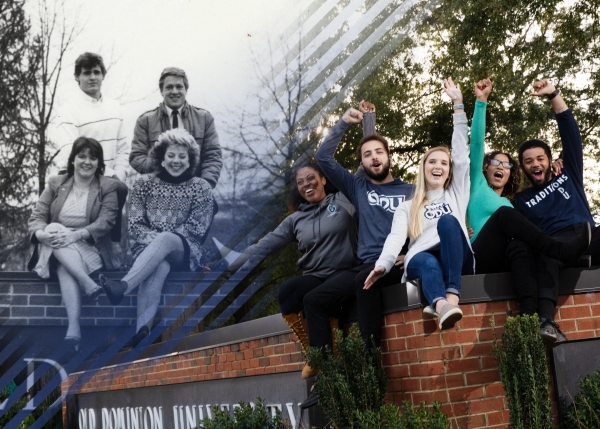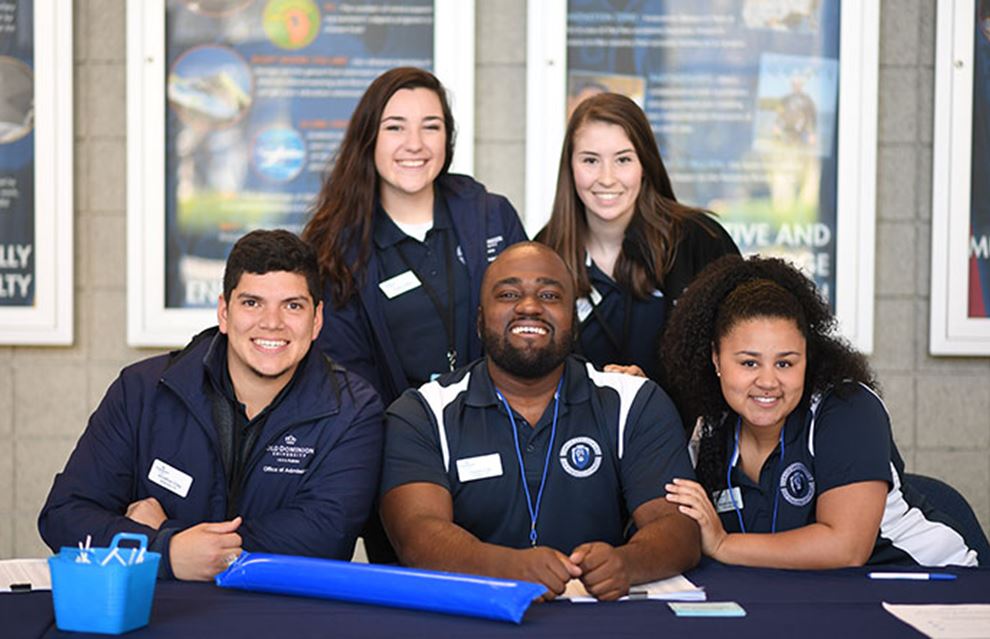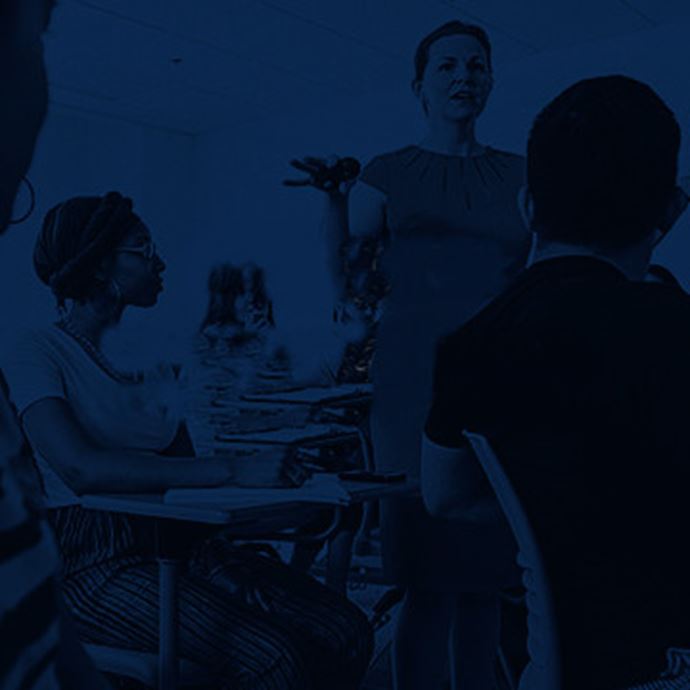Old Dominion University has been awarded $5 million by the Mellon Foundation to support the creation of the Monarch Humanities Internship Academy. The academy, part of the Monarch Internship and Co-Op Office, will provide the resources necessary for humanities majors to gain on-the-job training.
Humanities majors often face barriers to complete internships, including low or no pay, the need to work to stay in college and the absence of a robust internship infrastructure. In addition, employers may lack an understanding of the benefits of studying the humanities.
ODU surveyed exiting seniors about their internship participation and found that between 2014 and 2022, 29% of humanities majors completed internships. When asked what prevented seniors from interning, most cited work obligations, while others said they didn’t know enough about internships or could not find available opportunities. Others indicated family responsibilities and travel to and from campus were barriers.
The Monarch Humanities Internship Academy will address these challenges to ensure humanities students are included and financially rewarded for internships. The initiative will offer payment for students in fields where employers may not have funding in place to support interns.
“Old Dominion University has boldly stepped forward and made a firm commitment to current and future students that when they earn their degrees and embark on their careers, they will have the necessary work experiences, skills and professional networks to thrive,” said President Brian O. Hemphill, Ph.D. “We are profoundly grateful to the Mellon Foundation for this significant investment to ensure clear pathways for our humanities students to pursue their passions, serve local communities and achieve their goals. The Mellon Foundation has provided a strong framework to change the trajectory and increase the impact of our humanities graduates for years to come!”
As part of the award, students in select majors will be asked to seek opportunities with companies and organizations with social missions. The academy will also work with students to create electronic portfolios documenting their experience.
“The positive impact of this will be extraordinary,” said Laura Delbrugge, dean of the University’s College of Arts and Letters. “This means more of our students will hit the ground running when they graduate and join the workforce. We’re talking about career-building, life-changing experiences.”
Also, the award’s focus on social justice dovetails with numerous pillars of scholarship within the College of Arts and Letters, she said.
“I’m thrilled and deeply appreciative that our students will benefit from this innovative approach,” Delbrugge said.
In its 2023-2028 strategic plan, Forward-Focused: Where Innovation Meets Possibilities, ODU outlined a vision for every graduating student to complete an internship by 2027. In 2023, the University created the Monarch Internship and Co-Op Office, led by Executive Director Barbara Blake, to support fulfilling that commitment. The office works with students of all majors to remove barriers to participating in internships. ODU serves more than 2,000 students enrolled in humanities programs.
“The Monarch Humanities Internship Academy embraces ODU’s commitment to work-based learning,” said Brian Payne, vice provost for academic affairs and dean of interdisciplinary studies. “Incoming students will be exposed to internship opportunities at the soonest possible point; we don’t want students waiting until their senior year to start thinking about internships.”
Through her work steering the Monarch Internship and Co-Op Office, Blake has talked to employers who are seeking ways to create innovative work-based learning opportunities. Often, those conversations include helping them craft internships that aren’t restricted to one major or discipline.
“The real promise of the Mellon investment into ODU students is the support of the value of a humanities education. Some of those key tenets of the humanities are so ideal for employers — skills in critical thinking, communication, cultural competency, creativity and innovation, adaptability and flexibility,” Blake said. “There are multiple industries and multiple positions that need well-rounded candidates, and humanities students have a wide, diverse skill set.”
The investment will benefit regional employers, including nonprofits and small businesses, seeking to build talent pipelines, Payne said.
“In many cases, students are not able to do unpaid internships. By providing them access to paid internships, they gain work experience needed for future careers,” Payne said. “In addition, research shows completing internships helps students persist toward graduation. Increasing the number of possible internship sites will make it easier for future students to reap the benefits of work-based learning.”
“The real promise of the Mellon investment into ODU students is the support of the value of a humanities education. Some of those key tenets of the humanities are so ideal for employers — skills in critical thinking, communication, cultural competency, creativity and innovation, adaptability and flexibility. There are multiple industries and multiple positions that need well-rounded candidates, and humanities students have a wide, diverse skill set.” — Barbara Blake
The academy, steered by an advisory group of faculty and staff, aims to:
- Identify experiential learning pathways in every humanities degree program at ODU.
- Offer internship preparation to at least 100 humanities-focused freshmen each year through learning communities.
- Eliminate internship barriers for humanities students.
- Facilitate 750 humanities internships.
- Develop 750 online electronic portfolios.
- Develop a sustainable internship program providing support to humanities students.
Initially, the Academy will create five learning communities, each with 25 students, to help students begin their college careers with knowledge of internship opportunities.
Then, the University’s INNOVATE Monarchs program will bring together faculty and students for a series of INNOVATE Humanities sessions in design thinking about ways to scale internships.
Facilitated by the Office of Institutional Effectiveness and Assessment and the Office of Academic Success Initiatives and Support, the humanities programs will work to map curriculums that expand opportunities for experiential learning. Instructional designers will work with faculty to offer professional development to guarantee programs include internship courses and faculty are prepared to lead them.
The Monarch Humanities Internship Academy, staffed by two assistant directors and a program support specialist, will provide advising, coaching, assistance and support to humanities majors using a case management approach. The staff will work with employers to develop paid internship placements. Nonprofits and government agencies will be invited to hire students funded through the academy, while for-profit entities will be required to provide matching funds.
Finally, the Monarch Humanities Internship Academy will develop an undergraduate humanities internship studio, directed by Elizabeth Zanoni, an associate professor of history. The studio will offer paid stipends for undergraduate interns and graduate humanities students.
ODU was one of five public colleges and universities selected by the Mellon Foundation for a total award of $25 million to establish paid internships for humanities students. The Andrew W. Mellon Foundation is the nation’s largest supporter of the arts and humanities.
“While it is obvious from the data that humanities majors regularly graduate into jobs that they find both emotionally and financially rewarding, that message has not reached students or their families,” said Phillip Brian Harper, program director for Higher Learning at Mellon, in a release. “The internships funded through these grants will make it clear that humanities study leads not just to jobs, but to exciting career paths in a wide range of sectors.”
Top image: ODU communications student Ciara Jones interned with InovCares, a company working to modernize health care for women of color.







